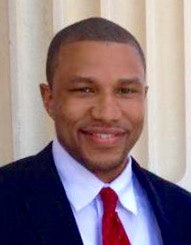Pope Paul VI is quoted as saying that “if you want peace, work for justice.” Many higher education institutions have made tremendous strides in addressing disparities in the area of race and class. There is, however, a long way to go.
Progress without equity is injustice. The tragic killing of Richard Collins III on the campus of the University of Maryland last month should cause colleges and universities around the country to pause and rethink their own campus culture.
 Dr. Marcus Bright
Dr. Marcus BrightUnfortunately, it often takes a crisis for institutions to engage in conversations around race and class. School leadership can lead the charge in being proactive about these issues and bringing these points to the center. If these difficult conversations can’t take place at our nation’s colleges and universities, then there is little hope for other areas of society.
Colleges that don’t address this issue head-on are likely to continue to just apply Band-Aids to deep wounds that don’t really address the root of the problems.
Interrupting the status quo will require a willingness to get uncomfortable. There is often an unwillingness to have real discussions on sensitive topics because there is a resistance to change in some quarters. There is a reluctance to have real action take place.
The consequences of not addressing the beliefs and issues that lie beneath the surface can be deadly. It is imperative for issues to be out into the open and addressed in a forthright manner. Many people are suffering, but remain silent because they don’t want to be labeled as difficult.
Columbia Professor Derald Sue has written extensively about microaggressions and stated that they can be intentional or unintentional. There are those brief interactions that communicate demeaning or hostile messages to members of marginalized groups. We may not even be aware that we are sending these subtle derogatory messages. There is an ever-present need to engage in a self-awareness learning process.
There is a need to cultivate different ways for people to enter the conversation. It may very well be the well-intended actions of good people that are helping to perpetuate inequity in higher education.
It would be prudent for college and university personnel to spend some time excavating and unpacking the hidden messages that are embedded in different interactions. Everyone is capable of delivering and receiving microaggressions because we are all susceptible to taking in the biases and prejudices that are embedded in societal conditioning through a variety of influences.
Microaggressions that continue to go unchecked can eventually become embedded in the culture of the campus. They can reach a level of normalization to where they are taken for granted. The cumulative impact of these interactions can then impact decision making and widen disparities.
Enormous gaps in access and equity have existed so long at some institutions that they no longer raise red flags. It has become a part of standard operating procedure. There is an unwillingness to get uncomfortable and venture into sensitive areas and dynamics that need unpacking.
University leadership can help to inspire faculty to not just focus on tenure, but to put effort towards the transformation of the campus culture. Addressing these disparities in a substantive manner requires something that is often missing — courage. Speaking up for justice is almost never safe. It is time for colleges and universities to get out of their comfort zones and garner the will to address issues of race and class in a direct manner.
Dr. Marcus Bright is a political commentator and executive director of Education for a Better America. He also serves as adjunct professor of public administration and political science at Lynn University.















